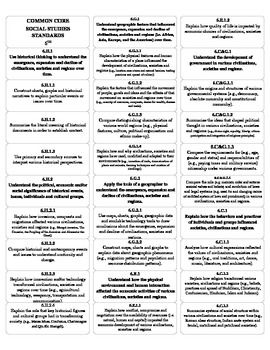

Still, while some references to minority groups were stripped, the committee’s work represents the first time there are multiple, specific references to marginalized groups, despite legislation that goes back decades requiring some be taught. About a third of the public feedback opposed more inclusive recommendations that were first issued in November, with two-thirds supportive. The committee had already informed the board in April that it decided to cut references to LGBTQ issues for students below the fourth grade. For example, one board member claimed discussing “LGBTQ” and “migration” in second-grade history standards could be considered as “indoctrination.” Yet dozens of references to those groups were stripped in the latest revision, after some board members critiqued it. The list of minority groups in the 2019 law specifically includes American Indians, Latinos, African Americans, and Asian Americans, the lesbian, gay, bisexual, and transgender individuals within these minority groups, and the contributions and persecution of religious minorities. About two-thirds of public comments were supportive of the original proposed revisions to standards that included more references to minority and marginalized groups. The parents support equity policies, teacher training and curriculum to meet the needs of their increasingly diverse student bodies such as LGBTQ students. Vrain Valley school board meeting September, 2021.

Jenny Brundin/CPR News Wendy Hutt and other parents gather following a St. Other new laws include standards for Holocaust and genocide studies, personal financial literacy, and media literacy. Vrain Valley Schools’s social studies coordinator, told the board.Ĭommittee members drew upon the recommendations of the 1192 Commission, part of a 2019 law requiring teaching the history, culture and social contributions of a number of minority groups in civil government lessons. “So, the committee used the terminology from the laws to help guide these recommendations,” Jenny Pettit, a member of the committee and St. An analysis of the standards in 2021 and public feedback indicated the new social studies standards were too vague and more examples were needed to provide more clarity and context for teachers. They stated that recommendations have faced “inappropriate political editorializing and concerning feedback from certain members of the Colorado State Board of Education.”Ī committee of teachers revised the standards to align to new Colorado legislation and public feedback. “I've only gotten through four grades and I already have five single-spaced pages of amendments because there's such an issue with content,” said board member Debora Scheffel.Īlso on Thursday, a group of Colorado lawmakers sent a letter to the board concerned about resistance to including the experiences of people of color and the LGBTQ community in history and civics standards. Still others suggested the standards need to be radically slimmed down and promised more written suggestions.
/static.texastribune.org/media/images/us-textbooks.jpg)
After a presentation on the latest version of the revised guidelines Thursday, several board members said they are an improvement, while some say there’s not enough references to LGBTQ groups or to Asian Americans.

Colorado’s seven-member state school board is aiming to approve revisions to the social studies standards by the end of the year.


 0 kommentar(er)
0 kommentar(er)
